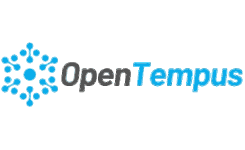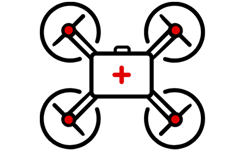Project
Call for Code® with The Linux Foundation
Call for Code®
Creating and deploying open source technologies to tackle some of the world’s greatest challenges.
Call for Code with The Linux Foundation provides a deployment framework to build, fortify, test, and implement open source projects created through the Call for Code Global Initiative and other sources of tech for good innovation.

OpenTempus provides long-term (annual) weather forecasts for temperature and rainfall in order to help smallholder farmers make better decisions about what to plant and when.
OpenHarvest is a platform designed to manage farmers, fields, and crops to ensure the farmers succeed in making profits.
Pyrrha is an IoT solution that measures toxins that firefighters are exposed to when battling wildfires. It calculates averages against thresholds to determine real-time and long-term averages for field teams to act upon. The project is built on Android, Kubernetes, MariaDB, Python, and React with Carbon.

OWL and DuckLinks come together to establish a quick, temporary, and low-bandwidth communications network in the aftermath natural disasters, giving those in need a simple and reliable interface to request assistance from authorities. The project leverages the Internet of Things and Artificial Intelligence.
ISAC-SIMO provides a system to validate that the intervention work done for homeowners has been done correctly, completely, and safely. It is based on a growing catalog of construction quality checks contributed by the open source community. The project is built on React Native, Jupyter Notebooks, and Django.
OpenEEW is an initiative to democratize earthquake early warning systems around the world through low-cost sensors, algorithms for detection and categorization, alerting capabilities, and an open source dataset of historical seismic activity. The project leverages the Internet of Things, Node-RED, and containers.

DroneAid defines a visual vocabulary those affected by disasters can use to express their needs. Reading the symbols, drones can relay vital information back to organizations that can help, potentially shortening the response time from days to hours. The project employs Visual Recognition and Machine Learning.
Rend-o-matic allows music groups to create a single video wall recording of a piece of music, where all of the individual submissions are captured separately on the performers’ phone, tablet or laptop. It uses Node.js and Python code deployed as Apache OpenWhisk Cloud Functions, Cloud Foundry, and Apache CouchDB.
Liquid Prep offers an end-to-end solution for farmers who want to optimize their water usage, especially during times of drought, in order to improve yields. The project uses IoT-connected moisture sensors, an Android progressive web app, Weather Company APIs, Apache OpenWhisk Cloud Functions, and Apache CouchDB.
The mission of Open Gea is to facilitate the sustainability and competitiveness of small farmers, providing them with access to technologies and information that facilitate the management of agricultural production.
Mobile application to capture incidents and provide information to police officers aimed at avoiding escalation, including a map view to enable search and visualization of incident clusters. Fair Change consists of a mobile app for iOS and Android built using React Native, and an API for capturing data from various sources built using Node.js.
TakeTwo is an app that aims to reduce racial bias in digital content, whether it is overt or subtle, with a focus on text across news articles, headlines, web pages, blogs, and even code. TakeTwo is built using Python, FastAPI and Docker. The API can be run locally with an Adobe CouchDB backend database or IBM Cloudant database.
Truth Loop is an app that helps communities simply understand the policies, regulations, and legislation that will impact them the most. Based on these insights, citizens can share their approval, concerns, and/or questions with lawmakers. The project leverages Kubernetes, PostgreSQL, Node.js, ExpressJS, and Vue.js among other tools.
The Open Sentencing solution starter helps expose bias and empowers public defenders to address racial disparities in the judicial system directly. We created a tool with the goal of reducing sentencing for people impacted by bias and racism. The project uses Angular, Java, Python/Flask, Apache CouchDB and various external data sources.
Incident Accuracy Reporting System (IARS)
Incident Accuracy Reporting System (IARS) is a Content Management application that addresses the issue of transparency surrounding police incident reporting by allowing witnesses and/or victims to directly submit evidence (images, videos). The solution is based on Kubernetes, Hyperledger, Jupyter notebooks, and consumes IBM Watson APIs.
This web app empowers minorities to exercise their right to vote and ensures their voice is heard by determining optimal voting strategies and limiting suppression issues. It’s built on the Carbon Design System implemented in VueJS with ExpressJS and Python backend services that invoke IBM Watson Tone Analyzer and Natural Language Understanding APIs.
Local legislation can have significant impacts on areas as far-reaching as jobs, the environment, and safety. Legit-Info helps individuals understand the legislation that shapes their lives. This app uses a Python/Django web user interface to collect and analyze information fetched from legislation data sets online.